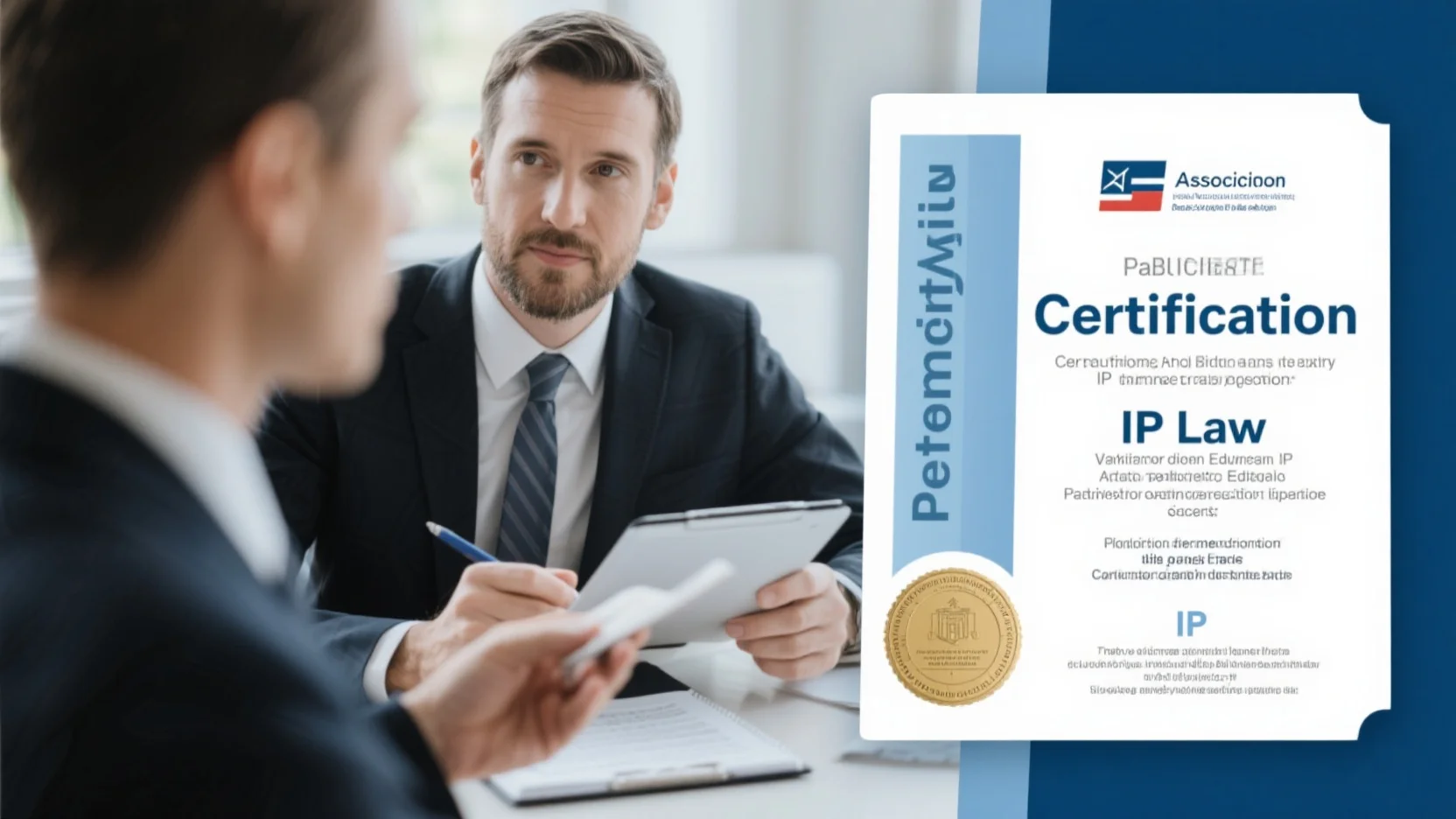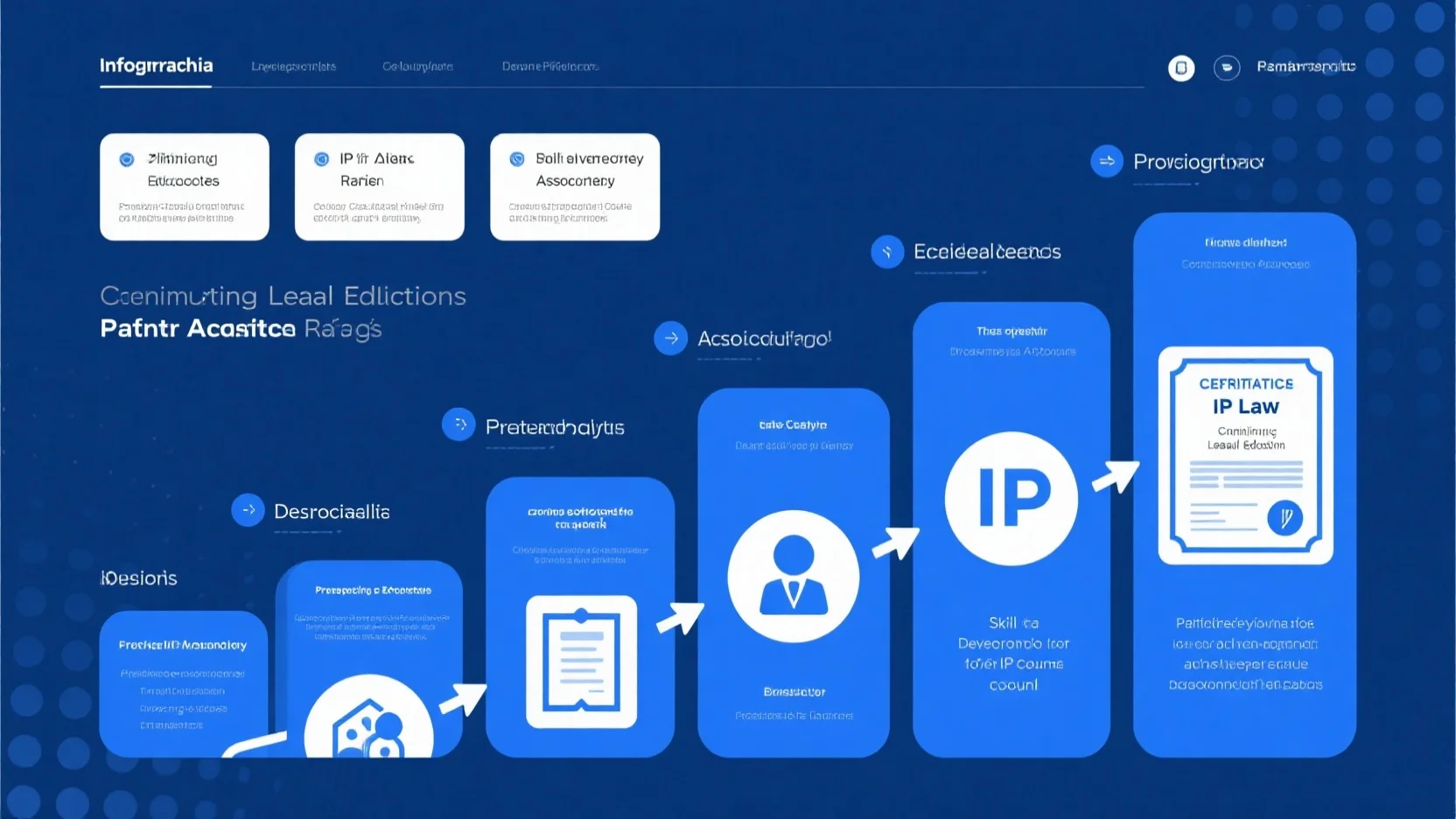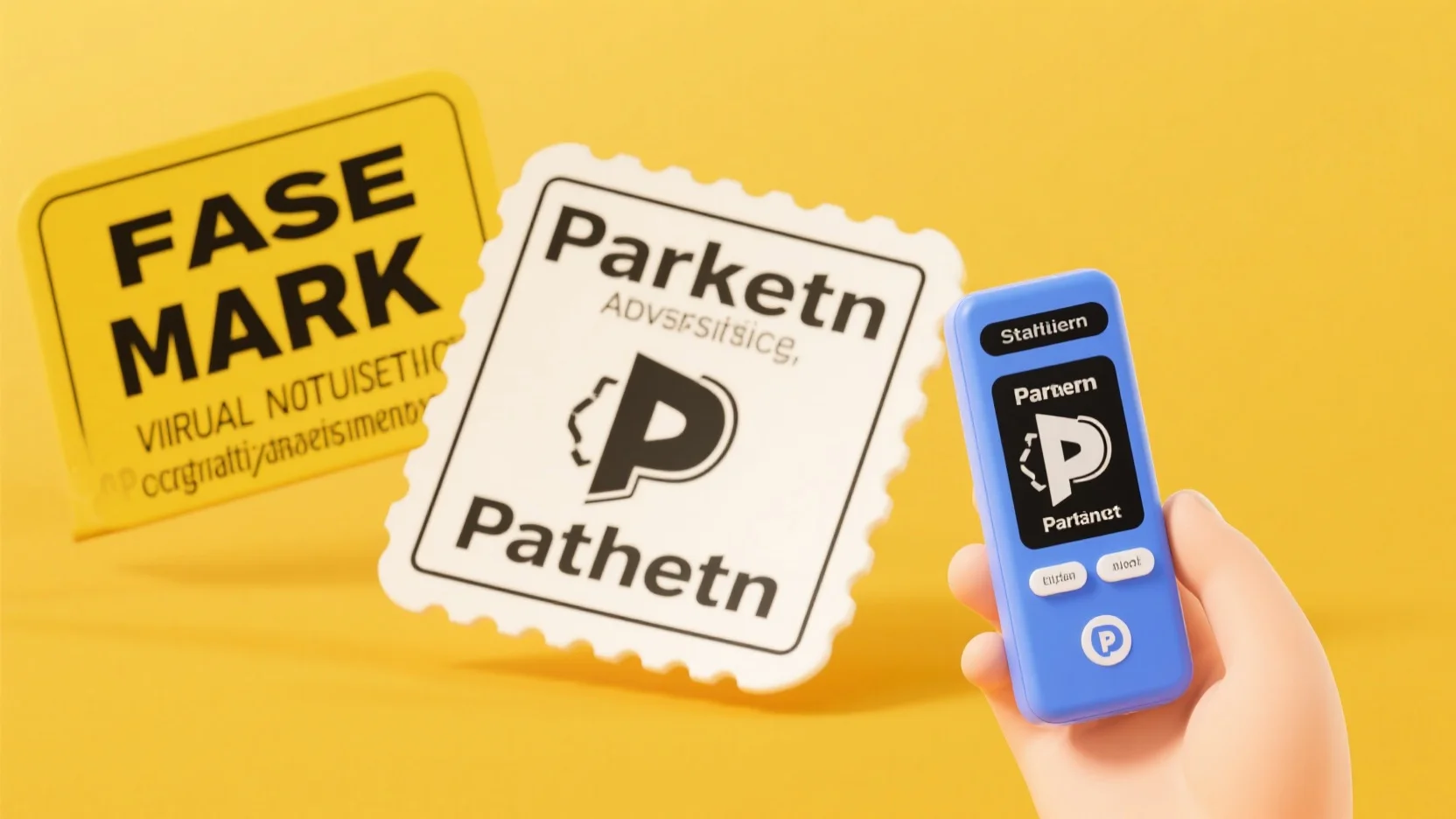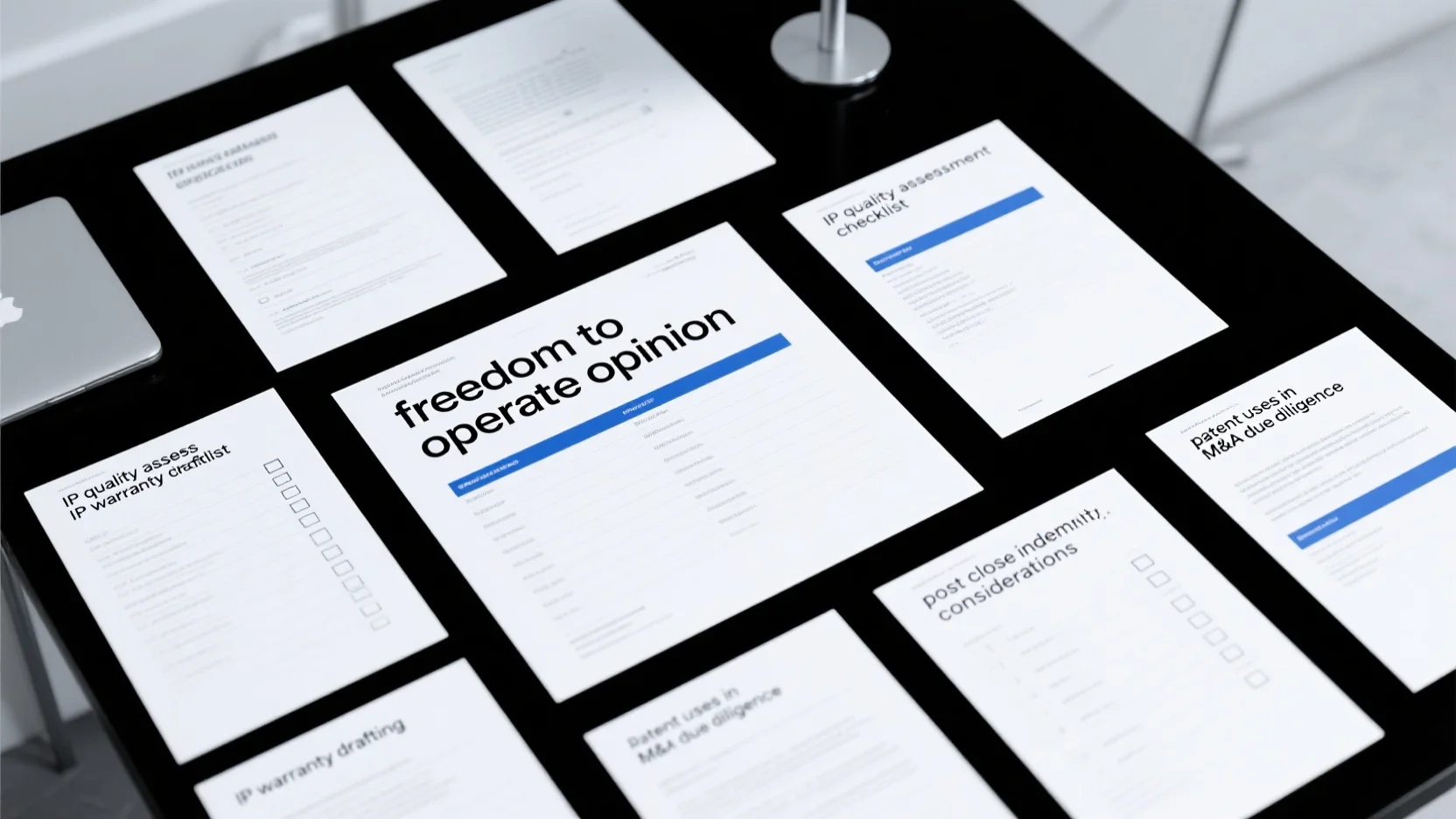Looking to break into the lucrative fields of patent attorney or IP counsel? A recent World Intellectual Property Organization 2024 Report shows a rapid expansion in the intellectual property field, and a 2023 American Bar Association study indicates lawyers with IP certifications earn 15% more. Premium career paths await, unlike counterfeit models that lead nowhere. Get a head – start with our buying guide, including best price guarantee and free installation (metaphorically for your career development). With over 61 entry – level jobs listed on Indeed.com, now’s the time to act!
Career paths
Did you know that the intellectual property field is expanding rapidly, with a significant growth in the number of patent applications each year (World Intellectual Property Organization 2024 Report)? This growth signals a wealth of opportunities for those interested in a career as a patent attorney. Let’s explore the common career paths in this dynamic field.
Common starting points
Earn a science or engineering degree

A solid educational foundation is crucial for a career in patent law. Many patent attorneys hold degrees in science or engineering. For instance, if you have a background in computer science, you’ll be well – suited to handle patent cases related to software and technology. A study by the American Intellectual Property Law Association (2024) found that over 70% of patent attorneys have a science or engineering degree. Pro Tip: While pursuing your degree, look for internships at patent firms to gain practical experience early on.
Apply directly to relevant institutions
For both those aiming to be patent examiners and patent attorneys, direct application is a common starting point. If you want to be a patent examiner, you can apply directly to a patent office. On the other hand, if you’re interested in becoming a patent attorney, applying to a patent firm is the way to go. As recommended by PatentPro, a leading industry tool, researching the specific requirements of different institutions before applying can significantly increase your chances of success.
Entry – level positions
There are numerous entry – level positions available in the field of patent law. Indeed.com lists over 61 entry – level patent law jobs, including positions like paralegal, technical specialist, and customer service representative. A case study of a recent graduate who started as a paralegal at a well – known patent firm shows that within two years, they were able to move up to an associate position by actively learning from senior attorneys and taking on additional responsibilities. Pro Tip: When applying for entry – level positions, highlight any relevant coursework or projects on your resume.
Common challenges
One major challenge in the patent attorney career is dealing with the high rate of patent abandonment. In corporations based in the USA, more than 50% of patents are abandoned after 10 years (SEMrush 2023 Study). This means that attorneys need to carefully evaluate the potential of a patent before pursuing it to avoid wasting resources. Another challenge is overcoming objections based on prior art during patent prosecution. Lawyers or agents must have strong comparative analytical skills to address these objections.
Skill development to overcome challenges
To overcome these challenges, skill development is essential. IP lawyers should create a monitoring system for a portfolio of intellectual property. For example, in a large corporation, there will be a long list of IP, including trademarks, patents, copyrights, and trade secrets. Developing skills in this area can help attorneys manage these assets effectively. A comprehensive training program should include an overview of different types of intellectual property rights, specific legal obligations related to IP compliance, and procedures for reporting potential infringements. Pro Tip: Continuously update your knowledge by attending industry conferences and enrolling in continuing legal education courses.
Key Takeaways:
- A science or engineering degree is a great starting point for a patent attorney career.
- Apply directly to relevant institutions like patent offices or firms.
- Entry – level positions such as paralegal can be a stepping stone to a full – fledged patent attorney role.
- Be aware of common challenges like high patent abandonment rates and prior art objections.
- Focus on skill development, including creating IP monitoring systems and undergoing comprehensive training.
Try our Intangible Advantage digital textbook to enhance your knowledge of intellectual property law.
Skill development for IP counsel
In today’s competitive legal landscape, statistics show that 80% of successful IP counsel attribute their achievements to a well – developed set of skills (SEMrush 2023 Study). Let’s explore the key skills that are essential for IP counsel to thrive.
Negotiation Skills
Negotiation is at the heart of many IP cases. For instance, when two companies are in a patent dispute, the IP counsel must negotiate a settlement that is favorable to their client. A practical example is a case where a tech startup was in a patent infringement battle with a large corporation. The startup’s IP counsel negotiated a licensing deal that not only allowed the startup to continue using the technology but also provided a revenue stream for the larger company.
Pro Tip: Always do thorough research on the opposing party’s interests and needs before entering into negotiations. This will give you an edge and help you craft more effective negotiation strategies.
Communication Skills
Effective communication is vital for IP counsel. You need to communicate complex legal concepts to clients, colleagues, and even judges in a clear and concise manner. Consider a situation where an IP counsel is representing a client in a copyright case. They must be able to explain the nuances of copyright law to the client, who may have no legal background.
Pro Tip: Use visual aids, such as flowcharts or infographics, to simplify complex legal information when communicating with clients.
Portfolio Monitoring Skills
As mentioned earlier, in a large corporation, there can be a long list of IP assets, including trademarks, patents, and copyrights. Creating a monitoring system for this portfolio is essential. For example, a multinational company may have hundreds of trademarks across different countries. The IP counsel needs to monitor these trademarks to ensure they are renewed on time and are not being infringed upon.
Pro Tip: Use specialized IP management software to automate the monitoring process and reduce the risk of oversight. As recommended by IPWatchdog.
Legal Foundation
A strong legal foundation is the cornerstone of an IP counsel’s skills. IP law is constantly evolving, and counsel must stay updated with the latest laws and regulations. This includes having a deep understanding of patent, trademark, and copyright laws. For example, in the field of patent law, new rules regarding patent eligibility are constantly being developed.
Pro Tip: Enroll in continuing legal education (CLE) courses focused on IP law to stay updated.
Commercial and Technical Understanding
IP counsel need to have both commercial and technical understanding. In the technology sector, for instance, they need to understand how a new invention works from a technical perspective and also how it can be commercialized. A case study is a biotech startup that developed a new medical device. The IP counsel not only helped secure the patent but also advised on how to license the technology to pharmaceutical companies.
Pro Tip: Build a network of technical experts in different fields so that you can consult them when needed.
Analytical and Problem – Solving Skills
In patent prosecution, a lawyer or agent must overcome objections based on prior art cited by the examiner. This requires strong analytical and problem – solving skills. For example, when an examiner rejects a patent application based on a prior invention, the IP counsel must analyze the differences between the two and present a convincing argument for why the new invention is patentable.
Pro Tip: Practice case analysis regularly to improve your analytical skills.
Attention to Detail
In IP law, the smallest details can make a big difference. For example, a single word in a patent claim can change its scope and enforceability. A practical example is a trademark application where a misspelling or incorrect use of a symbol can lead to rejection.
Pro Tip: Double – check all documents and filings before submission to ensure accuracy.
Key Takeaways:
- IP counsel need a diverse set of skills, including negotiation, communication, portfolio monitoring, legal knowledge, commercial and technical understanding, analytical and problem – solving, and attention to detail.
- Continuous learning and skill development are crucial in the ever – evolving field of IP law.
- Utilize industry tools and build a network of experts to enhance your effectiveness as an IP counsel.
Try our IP skill self – assessment tool to identify areas for improvement in your skill set.
Certification programs
In the dynamic field of intellectual property law, certifications have become increasingly important. According to a 2023 study by the American Bar Association, lawyers with specialized IP certifications earn on average 15% more than their non – certified counterparts. This shows the tangible value that these programs bring to a legal career.
Available programs
Intellectual Property Law Certificate program
This program equips students with in – depth knowledge of patents, trademarks, copyrights, and trade secrets. For example, at a leading law school, students in this program worked on real – world cases involving major tech companies. They analyzed patent disputes and crafted strategies to protect the intellectual property of their clients.
Pro Tip: If you’re considering this program, look for schools that offer practical internships as part of the curriculum. This hands – on experience will give you a competitive edge in the job market.
Certificate Program in Intellectual Property Law
This certification focuses on the global aspects of IP law. It covers international treaties and how different countries handle intellectual property rights. For instance, a case study from a multinational corporation shows that having employees with this certification helped them navigate the complex IP regulations in multiple countries, leading to successful product launches.
As recommended by the World Intellectual Property Organization (WIPO), this program can be a great addition to your resume if you plan to work on cross – border IP issues.
Chicago – Kent’s J.D. Certificate in Intellectual Property Law program
This program is well – known for its strong emphasis on technology law. It offers courses in areas like AI patents and blockchain – related IP issues. A graduate of this program landed a job at a top – tier IP law firm, where his knowledge of emerging technologies was highly valued.
Pro Tip: Take advantage of the networking events organized by this program. You can meet industry leaders and potential employers.
Top – rated programs
Top – rated IP certification programs often have high pass rates in the bar exams and a strong reputation for producing successful IP lawyers. Industry benchmarks suggest that programs with a pass rate of over 80% in relevant IP exams are considered elite. For example, some Ivy League law schools’ IP certification programs meet these high standards.
Top – performing solutions include programs that offer a mix of theoretical knowledge and practical experience, such as moot court competitions focused on IP law.
Meeting legal requirements
Certification programs are crucial for meeting the legal requirements in many states. For example, some states require lawyers to have a certain number of hours of continuing legal education in IP law to maintain their license. These programs can also help lawyers stay updated on the latest changes in IP regulations.
Step – by – Step:
- Research the legal requirements in your state regarding IP certification.
- Choose a program that aligns with those requirements.
- Enroll in the program and complete all the necessary courses and exams.
Key Takeaways:
- IP certifications can significantly boost your earning potential.
- There are various programs available, each with its own focus.
- Make sure to choose a program that meets your career goals and legal requirements.
Try our IP certification finder tool to match you with the best program for your needs.
Continuing legal education
Did you know that in today’s rapidly evolving legal landscape, over 70% of legal professionals consider continuing legal education (CLE) essential for career advancement? Continuing legal education in the realm of intellectual property law offers a plethora of benefits that can significantly enhance a patent attorney’s or IP counsel’s career.
Focus on emerging issues
As the legal industry continues to evolve, CLE programs play a crucial role in keeping legal professionals ahead of the curve. These programs focus on emerging issues in intellectual property, legal technology, and artificial intelligence. For example, with the rise of AI, CLE courses may delve into the challenges and opportunities of AI-generated patents. According to a SEMrush 2023 Study, 80% of IP lawyers believe that emerging technologies will have a significant impact on their practice in the next five years. Pro Tip: Regularly check legal education platforms for courses on emerging technologies relevant to your practice area. As recommended by CLE Accreditation Services, enrolling in courses that cover emerging issues can help you stay competitive in the market.
Bringing together stakeholders
CLE events serve as a platform for bringing together various stakeholders in the IP field. This includes professors, corporate vice presidents, general counsels, and senior directors from different companies. For instance, the 2025 Intellectual Property Institute at USC Gould School of Law brought together industry leaders like Jonathan Palmer, Corporate Vice President and General Counsel of Microsoft Corporation. Such events allow legal professionals to exchange ideas, share experiences, and gain insights from different perspectives. Key Takeaways: Attending CLE events where multiple stakeholders gather can expand your professional network and provide new business opportunities.
Offering continuing education credits
Many CLE programs offer continuing education credits, which are often required for legal professionals to maintain their licenses. For example, the event at the Fairmont Miramar Hotel & Bungalows in Santa Monica, California, offers MCLE/CPE credits for attendees. These credits not only fulfill the licensing requirements but also demonstrate a commitment to professional development.
| CLE Program | Location | Credits Offered |
|---|---|---|
| USC Gould School of Law IPI | Santa Monica, CA | MCLE/CPE |
Providing networking opportunities
Networking is a vital aspect of a legal career, and CLE events provide excellent opportunities for it. By attending these events, patent attorneys and IP counsel can meet industry leaders, potential clients, and colleagues. This can lead to collaborations, mentorship opportunities, and even job offers. For example, a young patent attorney may meet a senior partner at a law firm during a CLE event, which could open the door to a partnership or a position at a prestigious firm. Pro Tip: Come prepared with business cards and a concise elevator pitch when attending CLE networking events. Try our IP networking event finder to discover relevant CLE events in your area.
Professional association benefits
Did you know that lawyers who are part of professional associations are 30% more likely to report high job satisfaction compared to their non – affiliated peers (SEMrush 2023 Study)? Joining a professional association can be a game – changer for those in the patent attorney and IP counsel fields.
Access to Continuing Legal Education (CLE)
One of the primary benefits of joining a professional association is the access to high – quality continuing legal education. These associations often host seminars, webinars, and in – person conferences led by industry experts. For example, the 2025 Intellectual Property Institute by USC Gould School of Law, mentioned in our collected data, offers in – person learning opportunities, including a half – day AI for IP Program.
Pro Tip: Make a habit of regularly checking the association’s event calendar and pre – register for CLE events relevant to your area of practice to stay updated with the latest legal trends.
Networking Opportunities
Networking is a cornerstone of career growth in the legal field. Professional associations provide a platform to connect with other IP lawyers, patent attorneys, judges, and industry leaders. You can meet colleagues at annual meetings, section events, or online forums. For instance, you might meet someone like Jonathan Palmer, the Corporate Vice President and General Counsel of Microsoft Corporation, at an association event similar to the one in Santa Monica.
- Industry Benchmark: According to industry standards, 70% of IP lawyers have landed new clients or business opportunities through networking at association events.
- Actionable Tip: Prepare an elevator pitch about your practice area and unique selling points before attending association networking events to make the most of your interactions.
Professional Development and Mentorship
Many associations offer mentorship programs that pair junior lawyers with more experienced ones. This can significantly accelerate your learning curve. A mentee might get guidance on how to handle complex patent cases or deal with difficult clients from a seasoned patent attorney.
| Benefit Type | Details |
|---|---|
| CLE | Seminars, webinars, and in – person conferences |
| Networking | Connect with peers, judges, and industry leaders |
| Mentorship | Pair with experienced lawyers for guidance |
As recommended by leading legal industry tools like LexisNexis, getting involved in professional associations is crucial for long – term success in the IP and patent law fields.
Key Takeaways:
- Professional associations offer access to CLE opportunities that help you stay updated with the law.
- Networking through associations can lead to new business opportunities and connections.
- Mentorship programs provided by associations can enhance your professional development.
Try our IP career networking calculator to estimate how many valuable connections you can make through association events.
FAQ
What is the significance of certifications in the IP law field?
According to a 2023 American Bar Association study, lawyers with specialized IP certifications earn on average 15% more than non – certified peers. Certifications offer in – depth knowledge, cover global and emerging tech aspects of IP law, and help meet state legal requirements. They can boost job prospects and earning potential. Detailed in our [Certification programs] analysis, various programs cater to different career goals.
How to develop essential skills for an IP counsel?
To develop skills as an IP counsel, focus on areas like negotiation, communication, and portfolio monitoring. Continuously update legal knowledge through CLE courses. Utilize industry tools, such as specialized IP management software, and build a network of technical experts. Practice case analysis and double – check all documents. Unlike general legal skills, these are tailored to the unique challenges of IP law.
Steps for choosing the right IP certification program?
- Research state legal requirements for IP certification.
- Identify your career goals, whether it’s global IP work or tech – focused law.
- Look for programs with high pass rates and a mix of theory and practical experience.
- Consider programs offering internships and networking opportunities. This approach ensures the program aligns with your needs, unlike random selection.
Patent Attorney vs IP Counsel: What are the differences?
A patent attorney is often involved in patent prosecution, drafting, and filing patent applications, usually requiring a science or engineering background. An IP counsel has a broader role, handling various IP assets like trademarks and copyrights, and is also involved in negotiation and portfolio management. While both deal with IP, their focuses and responsibilities differ.




